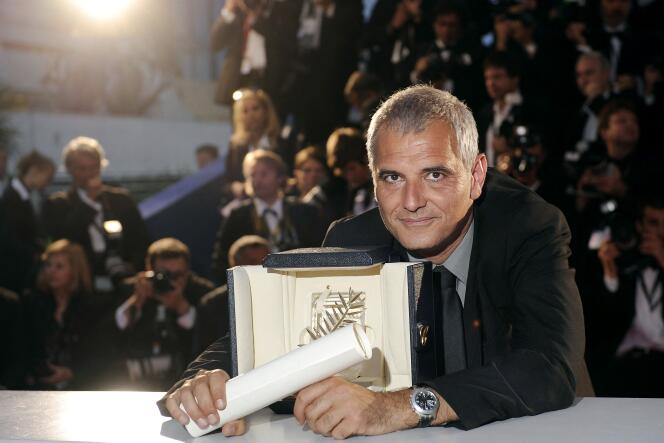


He belonged to the prolific generation that resuscitated French auteur cinema from the 1990s onward. Emerging later than his peers – Eric Rochant (Un Monde sans Pitié (Love without Pity), 1989), Patricia Mazuy (Peaux de Vaches (Thick Skinned), 1989), Xavier Beauvois (Nord, 1991), Cédric Kahn (Bar des Rails (Railway Bar), 1991), Arnaud Desplechin (La Sentinelle (The Sentinel), 1992) and Pascale Ferran (Petits Arrangements avec les Morts (Coming to Terms with The Dead), 1994) – Laurent Cantet left us much earlier than them. The filmmaker, who won the 2008 Palme d'Or with Entre les Murs (The Class), died on Thursday, April 25, at the age of 63, after a long battle with an illness.
Born in 1961 in Melle, western France, the son of a schoolteacher entered IDHEC (the forerunner of the FEMIS film and television school) in 1984, where he made friends with Dominik Moll and Gilles Marchand. He always retained a form of humanism and a moral stance from his modest upbringing that are not commonplace in show business. Transmission, reflection and intelligence – all concepts that spearhead the school – were also cinematic virtues for him. Following in the footsteps of the Dardenne brothers, inventors of this great contemporary form, he belatedly but steadfastly found his artistic style in a subtle blend of social issues and romantic stakes. In a way, Tous à la Manif ("Everyone to The Protest"), his first short film from 1994, foreshadowed what would become his lingering disposition.
His career, which includes nine feature films between 2000 and 2021, was marked by two major achievements. These were his first feature, Ressources Humaines (Human Resources, 2000), and Entre les Murs (The Class, 2008), which won him a Palme d'Or. The prestigious prize had not been granted to a French film since the rebuttal to the critics that was the awarding of Maurice Pialat's Sous le Soleil de Satan (Under The Sun of Satan) in 1987.
The first of these films, which features the remarkable actor Jalil Lespert at 23 years old, is a kind of Oedipus story set in a factory. Franck, a business school student, returns to his native region and joins the human resources department of the factory where his working-class father and sister have been employed for 30 years. A dispute over the 35-hour week soon turns him into a tragic hero, albeit in a far more surprising way than the situation would seem to suggest. Perfectly documented and shot with a majority of non-professionals, Ressources Humaines left its mark by turning the corporate world, a realm then seldom frequented by fiction cinema, into a stage for novelistic theater like any other.
You have 59.42% of this article left to read. The rest is for subscribers only.
